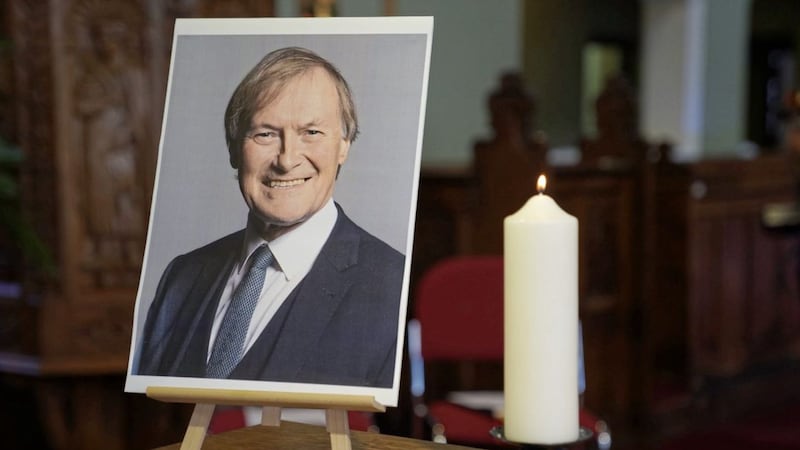This time last week, David Amess would have been checking through his diary, making plans for that weekly ritual of elected politicians, the Friday surgery.
Little did he know then that within 24 hours he would be dead, that his political enemies would be eulogising him, and the town he loved so well would be elevated to city status in his honour.
There is much we would have disagreed about – not least Brexit, for which he was a champion. But we would have agreed on other things, among them his concern for animal welfare. Perhaps the most striking thing about Amess was his tenacious commitment to his constituents and his refusal to play the tempting political games that might have taken him into office.
All too often the political work that really matters – fighting for one's constituents – is overlooked. Amess was, by all accounts, an exemplary constituency MP.
I regard myself as pretty unshockable, but when I heard the news on Friday, I was deeply disturbed. Like many I have contempt for much of what goes on at Westminster. But I cannot think of a better system than democracy, and I believe the threat to any MP is a threat to us all.
Here, political representatives have too often been in the firing line.
Amess is not the first MP to die in such circumstances, and whatever measures are put in place, he is unlikely to be the last.
I am not so naïve as to think that there has been a decline in standards. The history of the world is littered with extremism, with political assassinations, and with polarising ideologies which target innocent people in the pursuit of purity.
But there has been a fundamental shift over the past two decades or so which has given licence to extremists of all political persuasions and none to target, in the most pernicious way, people in public life. That shift has accelerated polarisation, and it has gifted government to ideologues and populists from Bolsonaro in the west to Duterte in the east – and all points in between.
In large part, that shift is the result of the unrestrained rise of social media, and the greed of large multi-nationals which profit from it by deploying algorithms that foment division, and which feed the deluded with stories that reinforce their prejudices.
The level of abuse suffered by public figures has long passed acceptability – death threats, threats of sexual violence, attacks on their loved ones, are now part and parcel of being in public life. And some of the most vile abuse is directed at women.
Social media has given a platform to people who are a disgrace to humanity.
Day in and day out the apologists defend the Facebooks, Twitters and Instagrams of this world. They talk about their systems to moderate comments, their penalties against those who transgress; they speak of innovations in artificial intelligence which will root out wrongdoers.
And yes, the American insurrectionist Donald Trump has been deprived of his Twitter account.
But this is all window dressing.
While social media giants allow the trolls to hide under the cover of anonymity, they will be free to spew out their bile.
Anyone can set up an account and go to war on the public figure of their choice; a footballer because he is black; a reality TV star because they have ginger hair; a politician because she is a woman. And when I say war, I mean war – using language that has no place in a family newspaper and which stains the user every bit as much as it distresses the receiver.
Few of us are beyond reproach in this. When I reflect on my changing attitudes over the years I recognise in myself a hardening of heart, a temptation to see those I disagree with in distinct terms rather than shades of grey, and an unwillingness to ‘step into the other person’s shoes’.
One of those I would have dismissed out of hand with an expletive is the MP for Rayleigh and Wickford, one Mark Francois whose views on pretty well everything I would dispute.
But he pulled me up short when, in the Commons this week, he committed himself to a bill to prevent trolls hiding behind pseudonyms. MPs, he said, should call social media bosses to account “for their actions or rather their inactions that make them even richer than they already are”.
The oxygen of publicity is the best way of disarming the trolls and calling them to account. On this Francois is right.









